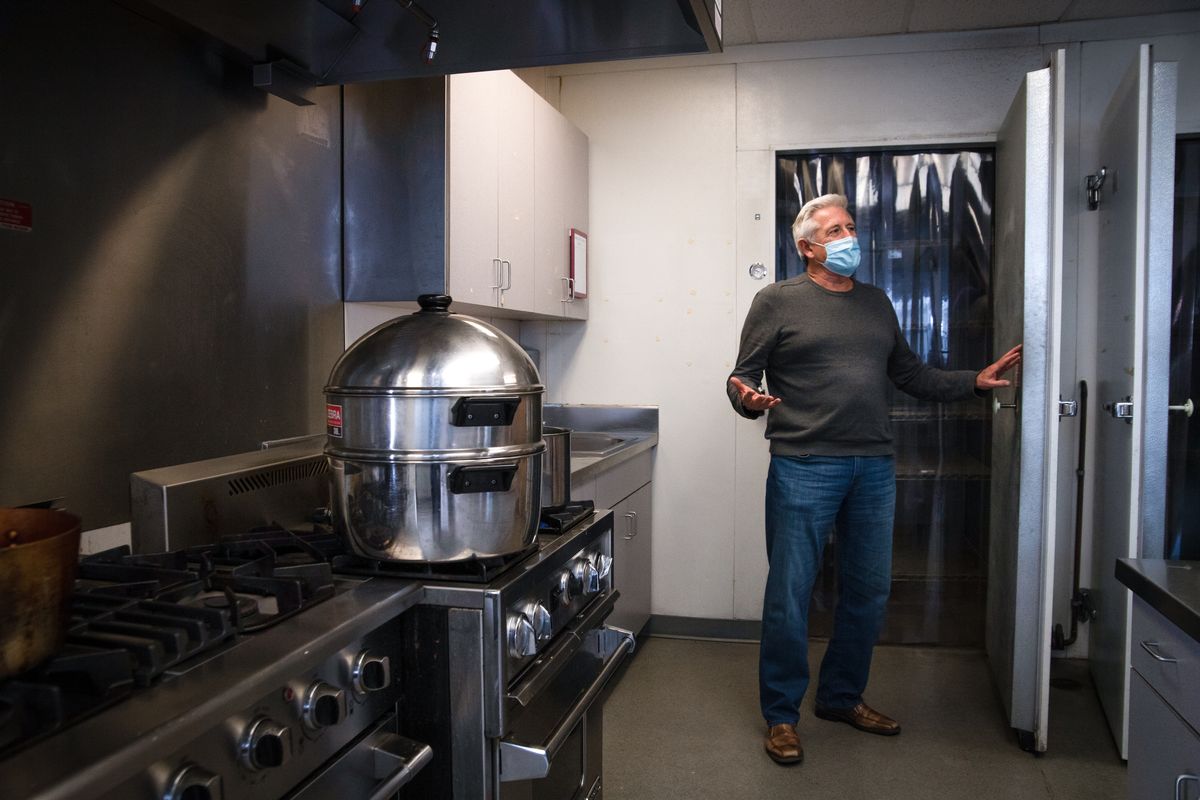Maddie’s Place to open care facility for drug-addicted newborns at former Vanessa Behan building

A group of people led by a Spokane acute care nurse is preparing to open the fourth Pediatric Transitional Care Facility in the country this summer in the South Hill building that used to house the Vanessa Behan Crisis Nursery.
Called Maddie’s Place, the nonprofit organization will house and treat drug-addicted newborns and work to create lasting bonds between them and their mothers. Organizers hope to have a soft launch this summer with room for three babies and then expand to 17 babies in the fall when remodeling is fully complete.

Maddie’s Place founder and clinical director Tricia Hughes said the roots of the organization trace back to her first foster child.
“I just got funneled this little boy,” she said. “His mom was shooting up while pregnant.”
The baby boy nearly died 10 minutes after he was born, but doctors were able to save him. Hughes and her husband, Carey Hughes, adopted the boy.
“He’s now 19,” Hughes said. “We’ve adopted four more and fostered 20 others.”
Maddie’s Place is named after one of Hughes’ children. Maddie was born to a homeless drug-addicted mother and lived on the streets as a newborn. Hughes got her when she was 18 days old, and she was the first foster baby that Hughes had in her care while actively going through withdrawal.
“She was tremoring from head to toe,” she said. “Her skin was peeling off in layers from her belly button to her knees. She would eat and then throw it up.”
Like all babies going through withdrawal, Maddie was very sensitive to light and sound and was easily overstimulated. Hughes carried her in a baby wrap day and night, and Maddie was gradually able to come out of her safe cocoon.
“For three months, she was really sick,” Hughes said. “That really etched in my mind.”
Hughes wanted to help as many drug addicted babies as she could.
“I started realizing that lots of people were getting sick babies like this,” she said. “My husband very wisely said, ‘You can’t help them all.’ ”
In 2017 she started talking to people about creating an organization to help those babies. Plans slowly came together. In December 2019, the organization signed a deal to purchase the 12,000-square-foot former Vanessa Behan facility.
“All we had, we’d gotten a $17,000 gift,” said board chairman and president Shaun Cross. “That allowed us to put down a $10,000 deposit.”
The plan was to raise the $1.25 million purchase price in six months, but COVID-19 intervened. Given a six-month fundraising extension, board members relied on Zoom to arrange meetings with local foundations and philanthropists.
“We raised $1 million in the last four months of last year over Zoom,” Cross said.
Major donors include the Excelsior Foundation, Premera Blue Cross, Avista Foundation, Washington Trust Bank, Empire Health Foundation, United Healthcare, Yoke’s Fresh Foods, Alliant Insurance, the Patrick Foundation, the Kalispell Tribe, Lee & Hayes PC, and the Harriett Cheney Cowles Foundation. The Cowles family owns Cowles Co., which owns The Spokesman-Review.
The plan is for babies to stay at the facility as long as they need. Mothers who are still actively using drugs will be allowed to visit during the day, but mothers who are no longer using drugs or who are in treatment will have 24-hour-a-day access to their baby.
“We think the demand is 1,000 babies a year,” Cross said. “We’ll be able to treat 200 and their mothers.”
Hughes said drug-addicted babies are usually discharged from the hospital after four to six days. That’s not enough time for babies to recover and a mother with drug addiction is often ill-equipped to care for a baby with such different needs, Hughes said.
“It gets very stressful, very quickly,” she said.
Dr. Ron Ilg serves as the organization’s executive director and chief medical officer. A pediatrician, he’s treated hundreds of drug-addicted babies, and he’s seen firsthand what happens with their mothers, even those who want to be involved with their baby. Often the mother is worried about having food and housing. They often feel judged and ashamed.
“They become very quickly disengaged,” he said. “They feel horrible. They don’t want to be there and feel these things.”
Without intervention, women can have several drug-addicted babies and then lose custody of them. The goal of Maddie’s Place is to foster a bond between mother and baby that can help end that cycle, Hughes said. It’s something she’s seen in her own children.
“I have two sisters, and their mom is about to deliver her sixth,” she said.
Ilg said doctors focus on treating the babies while they’re in the hospital and often don’t know what happens to them after they leave.
“The hospitals are doing the best they can,” he said. “Hospitals aren’t set up for long-term care. That’s where Maddie’s Place will come in.”
The organization plans to hire seven registered nurses and 17 trained caregivers to care for the babies.
“Infants here will have every cry met with attention,” Hughes said.
Maddie’s Place is in the process of being licensed to care for babies, but cannot treat their mothers as well. Instead, Maddie’s Place will partner with other organizations, such as Excelsior, to provide help and services to the mothers.
“The mental health providers will be huge for our moms,” she said.
The organization is currently raising $500,000 to remodel the building to accommodate individual rooms for each baby. So far, they have cash and pledges for half that amount, Cross said.
Those interested in making a donation can visit maddiesplace.org.
———
Nina Culver can be reached at nculver47@gmail.com